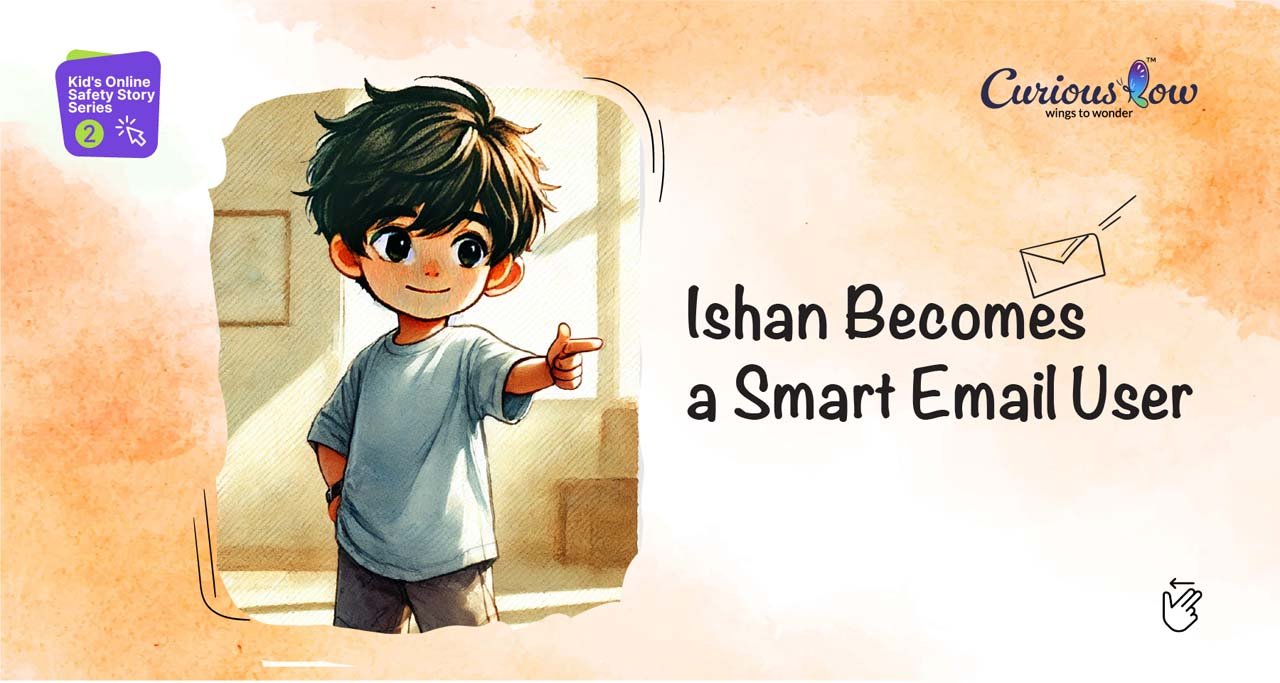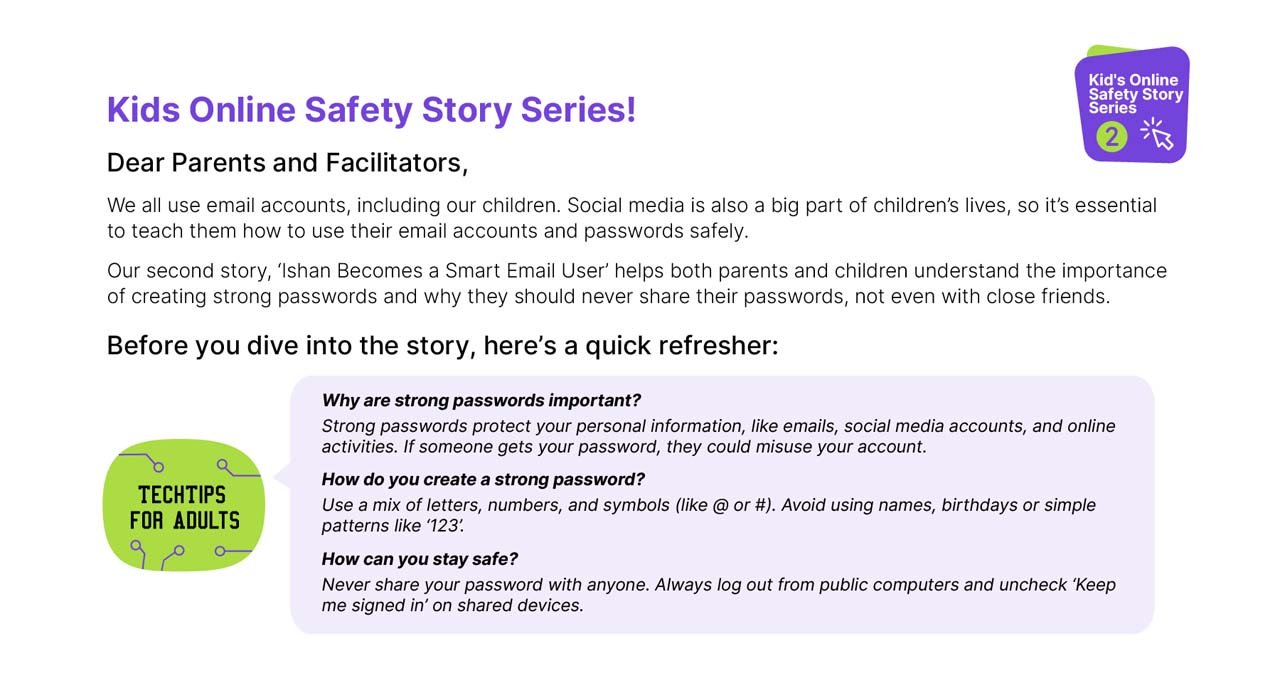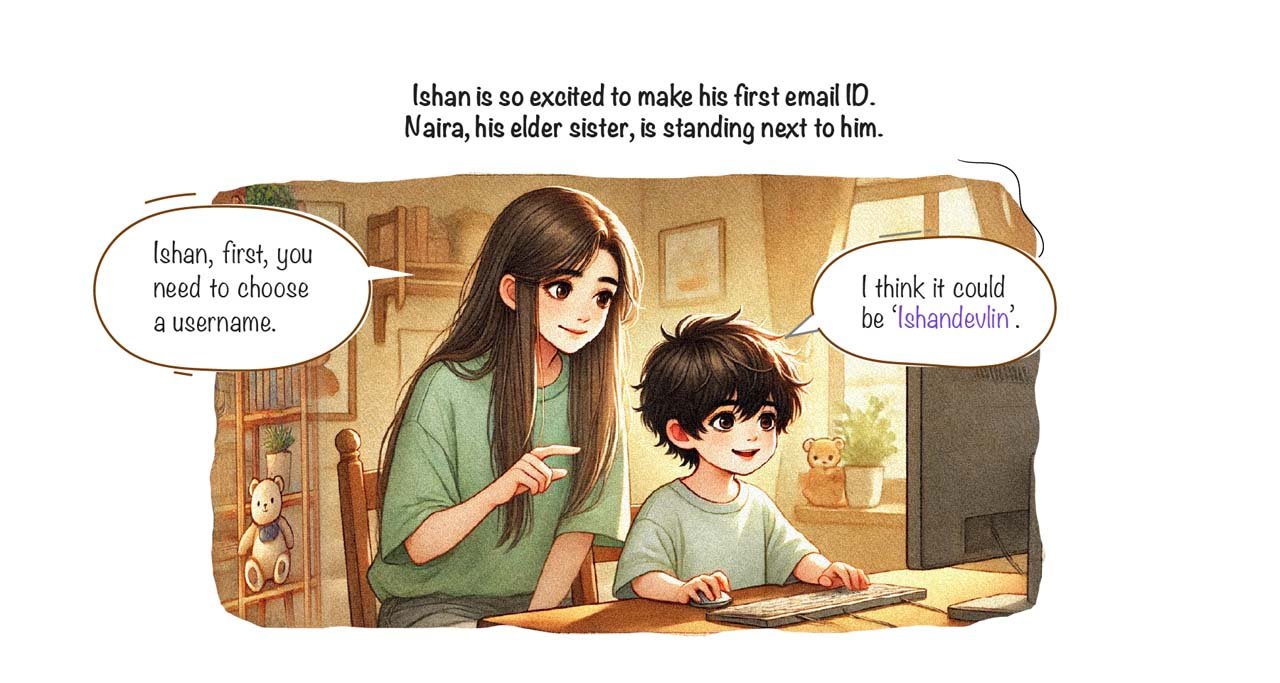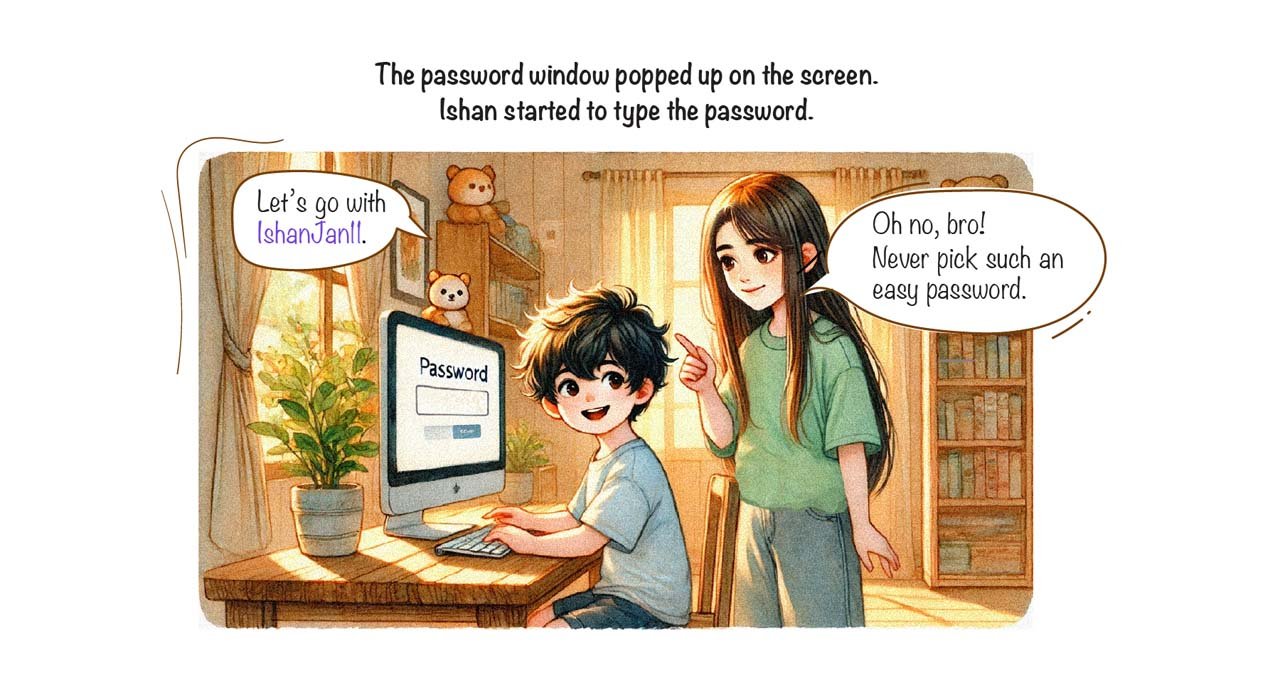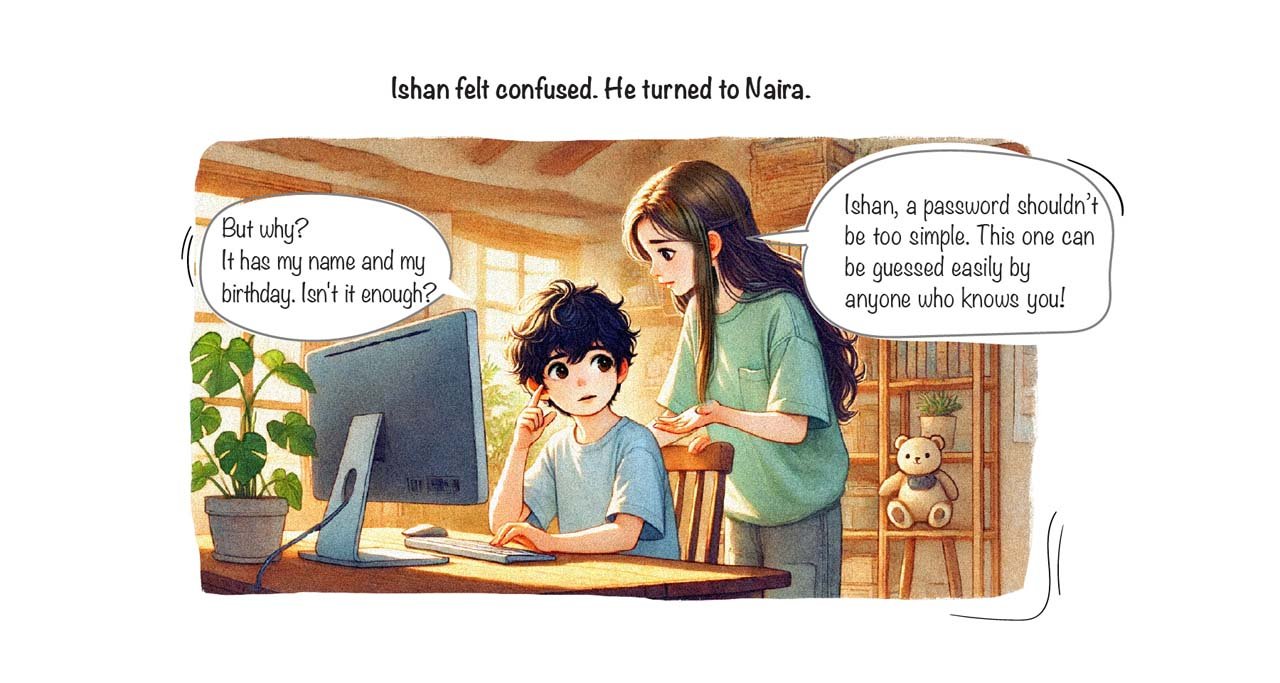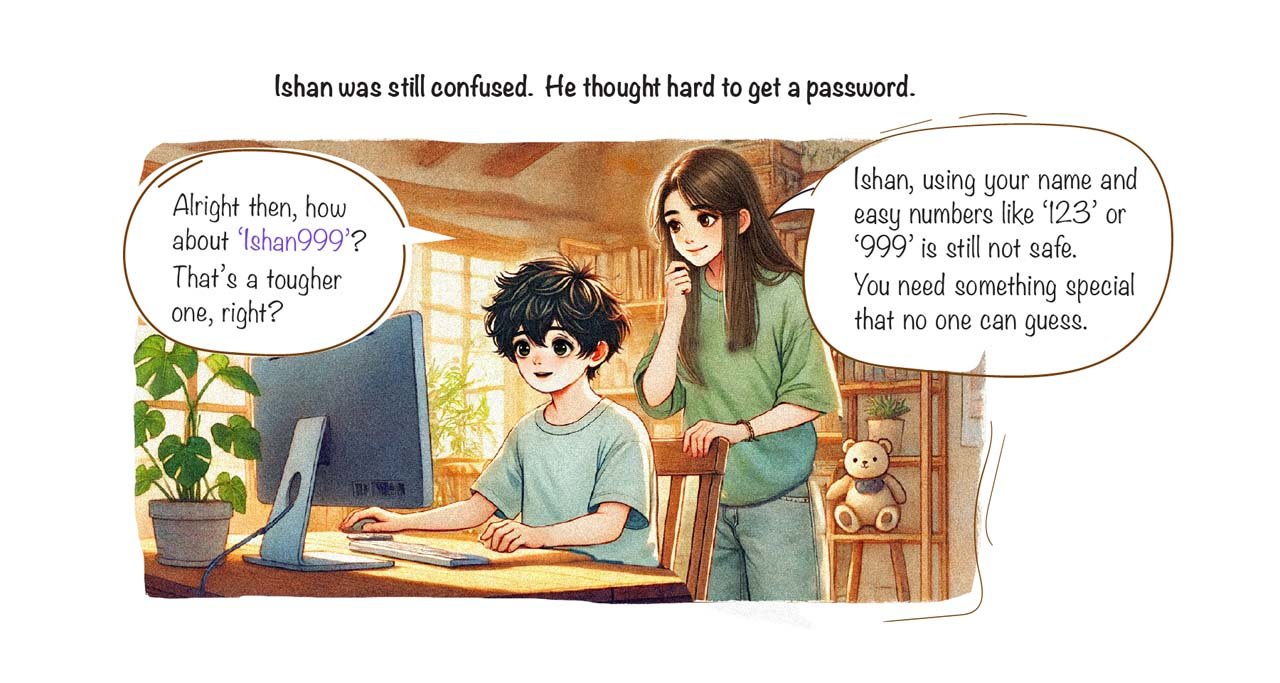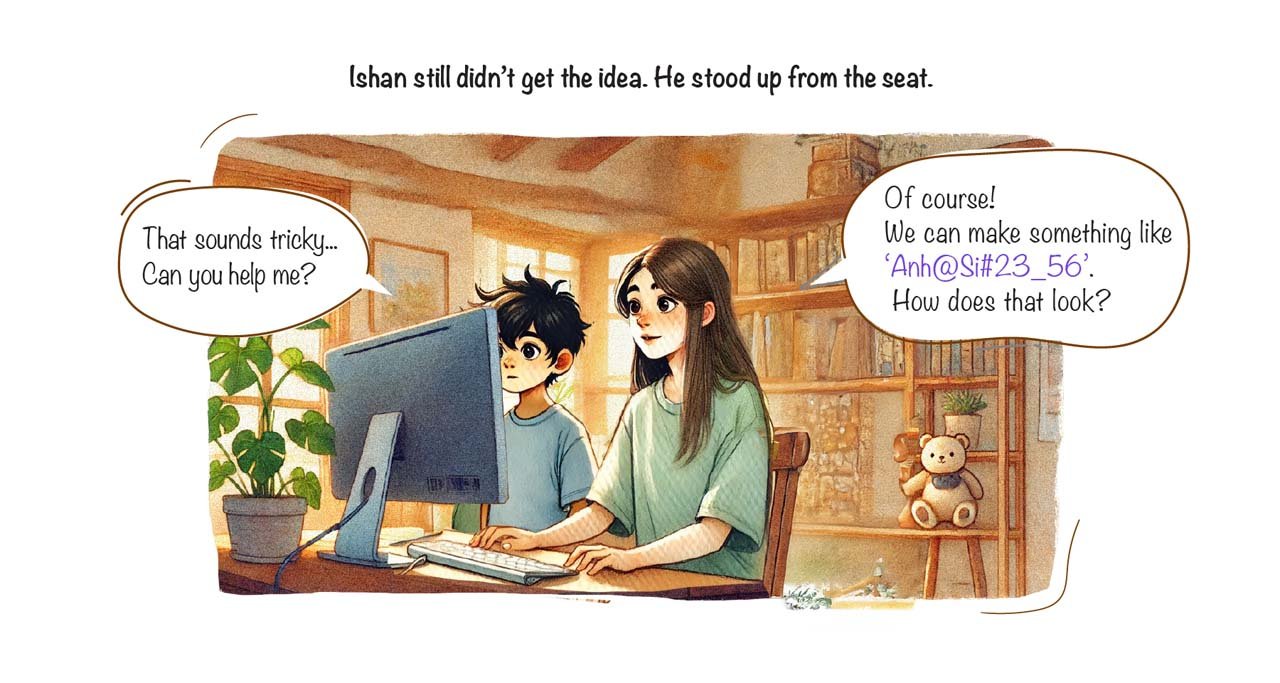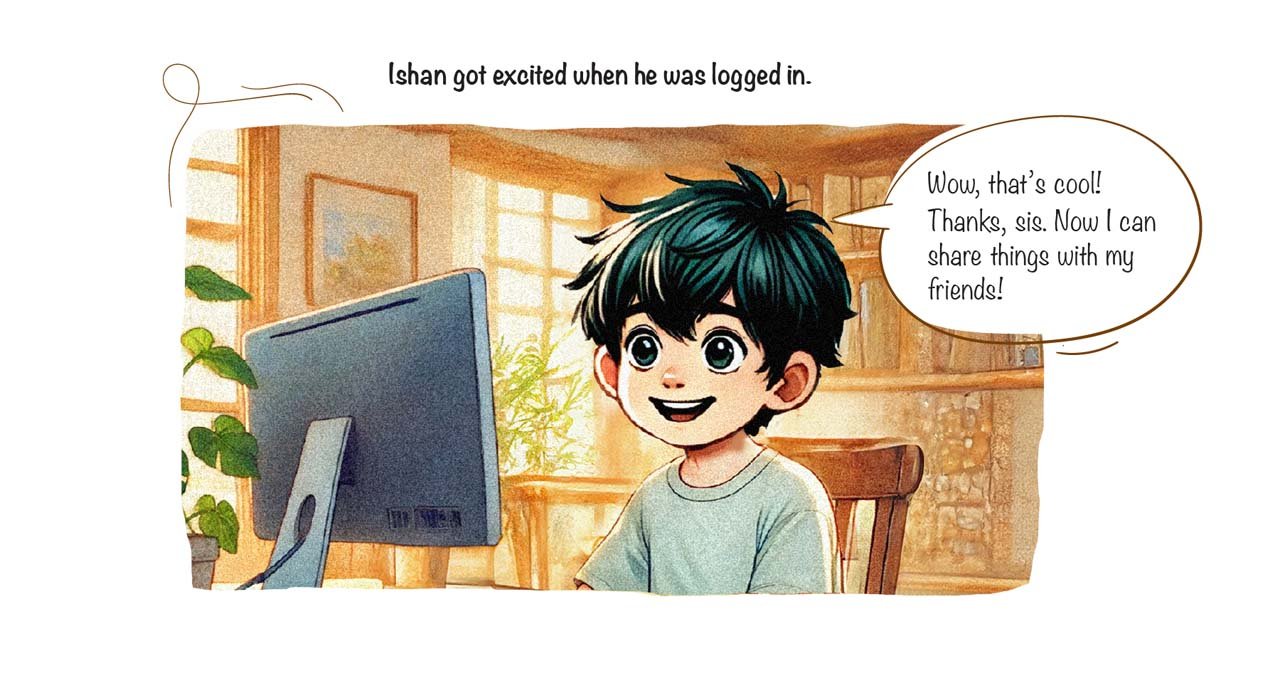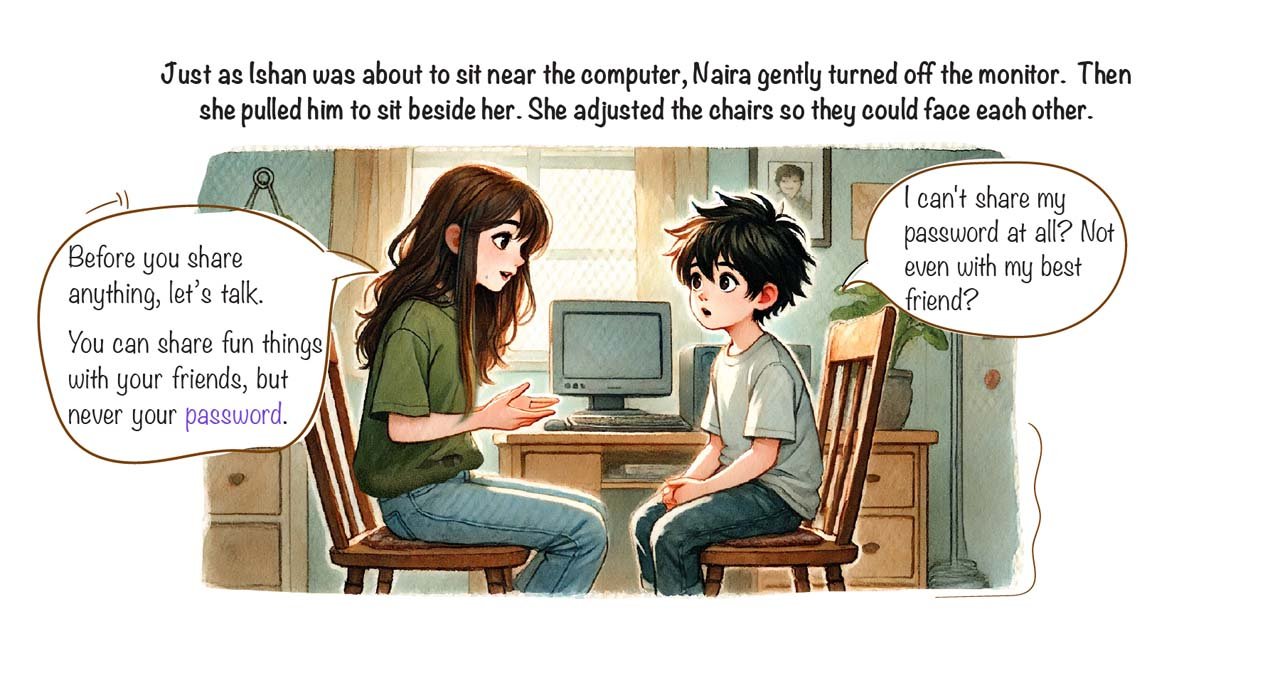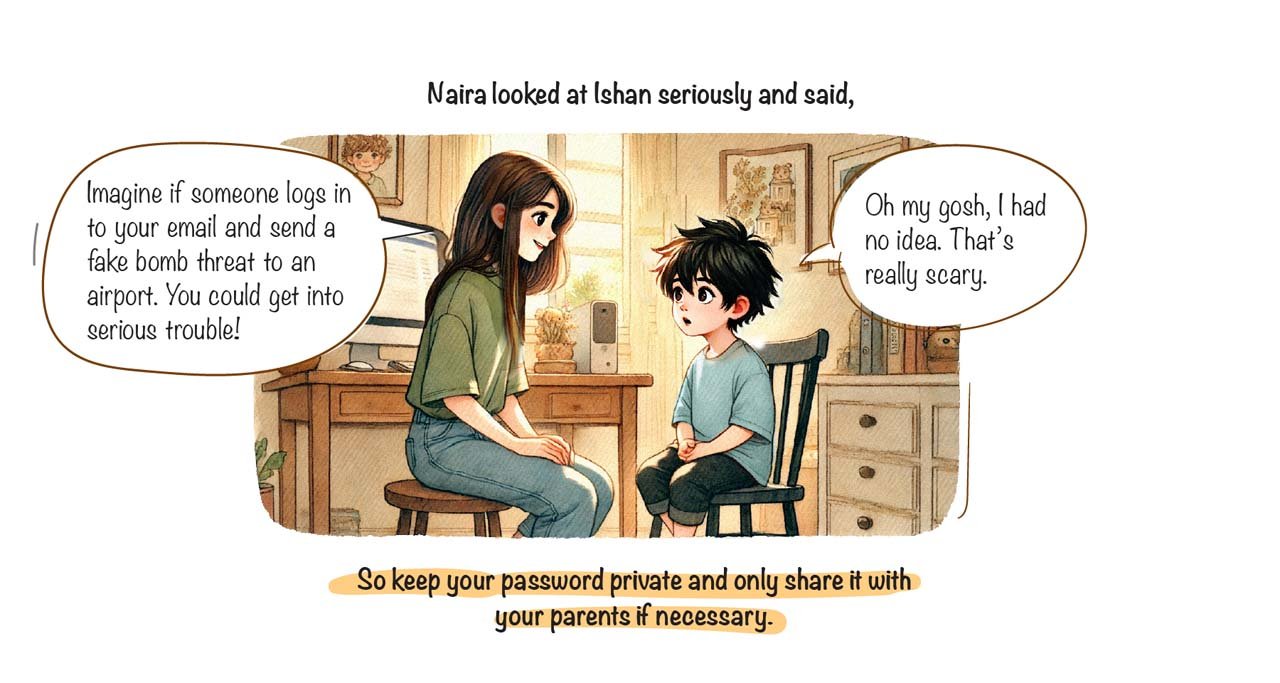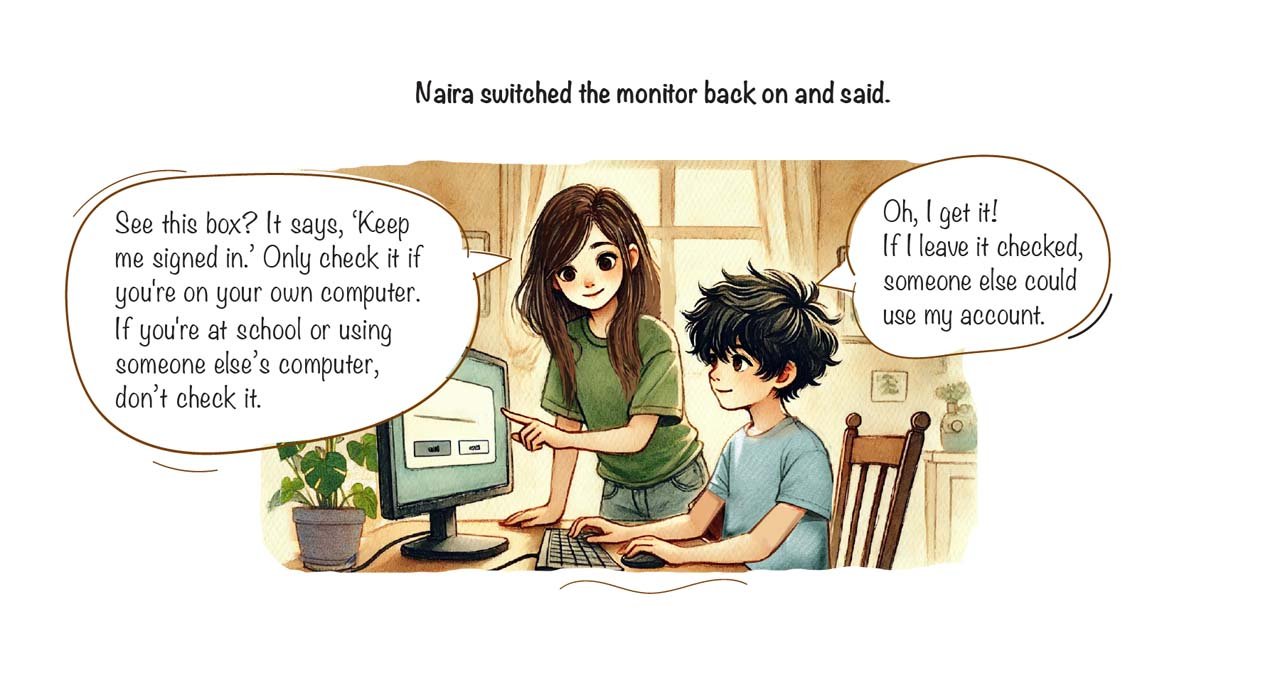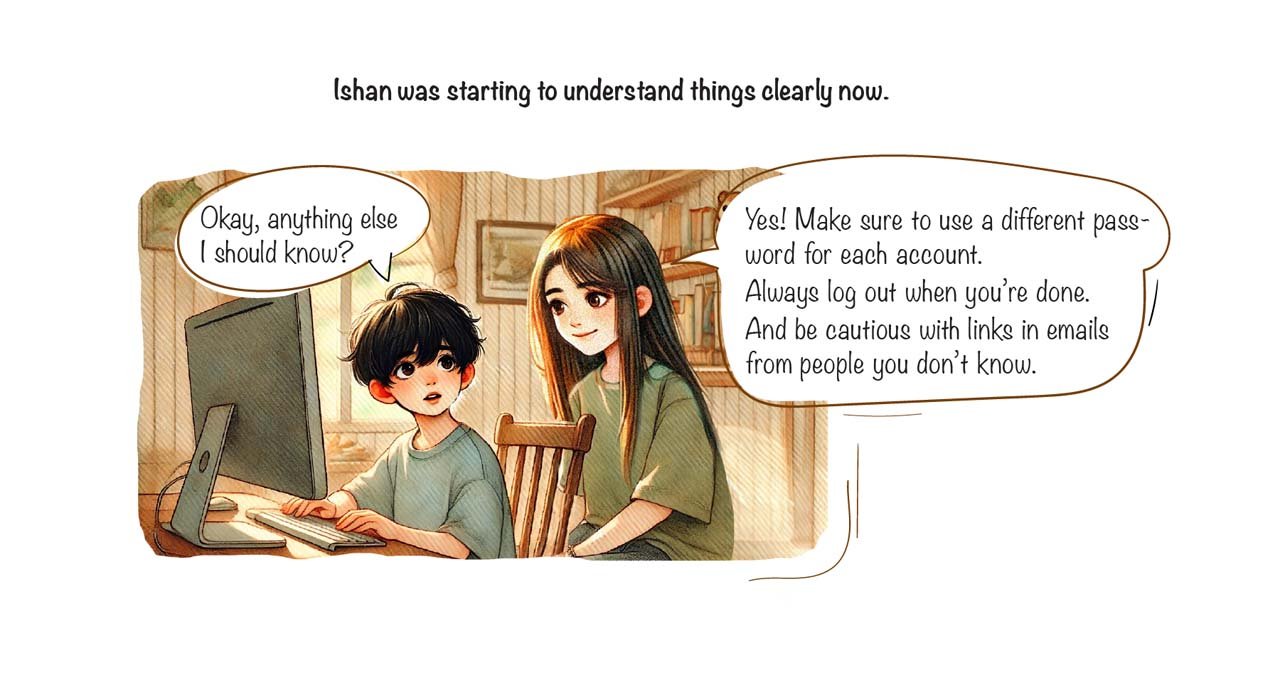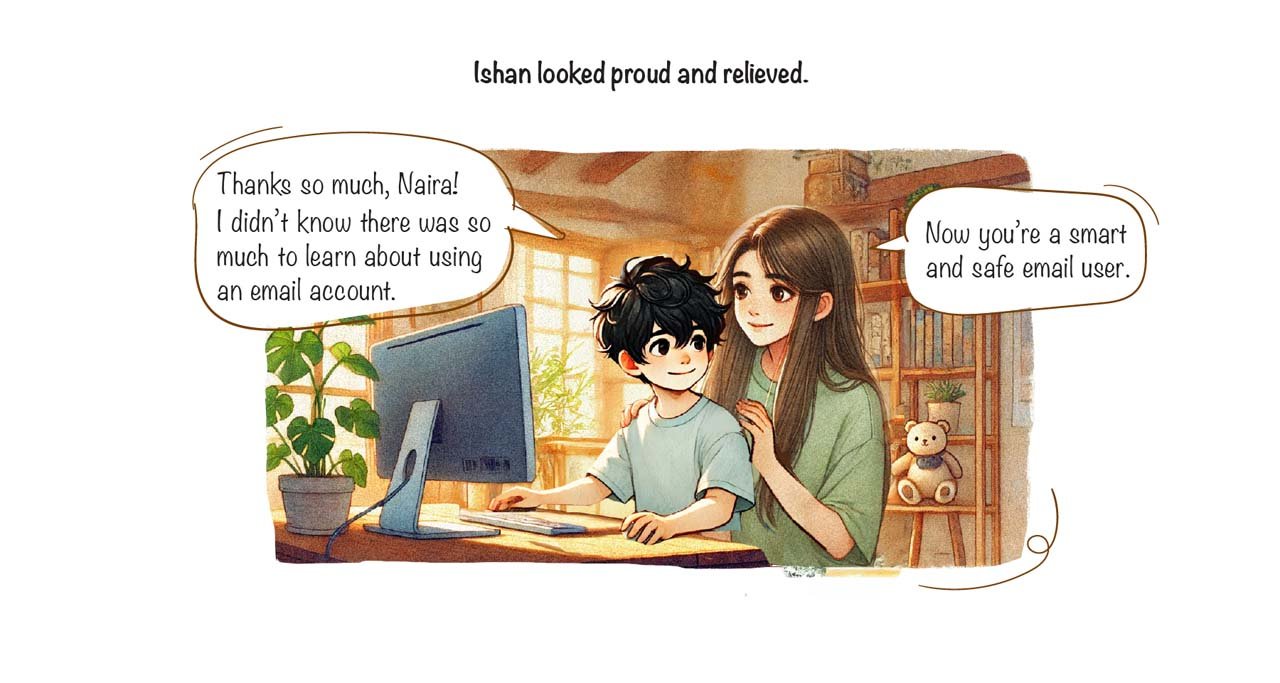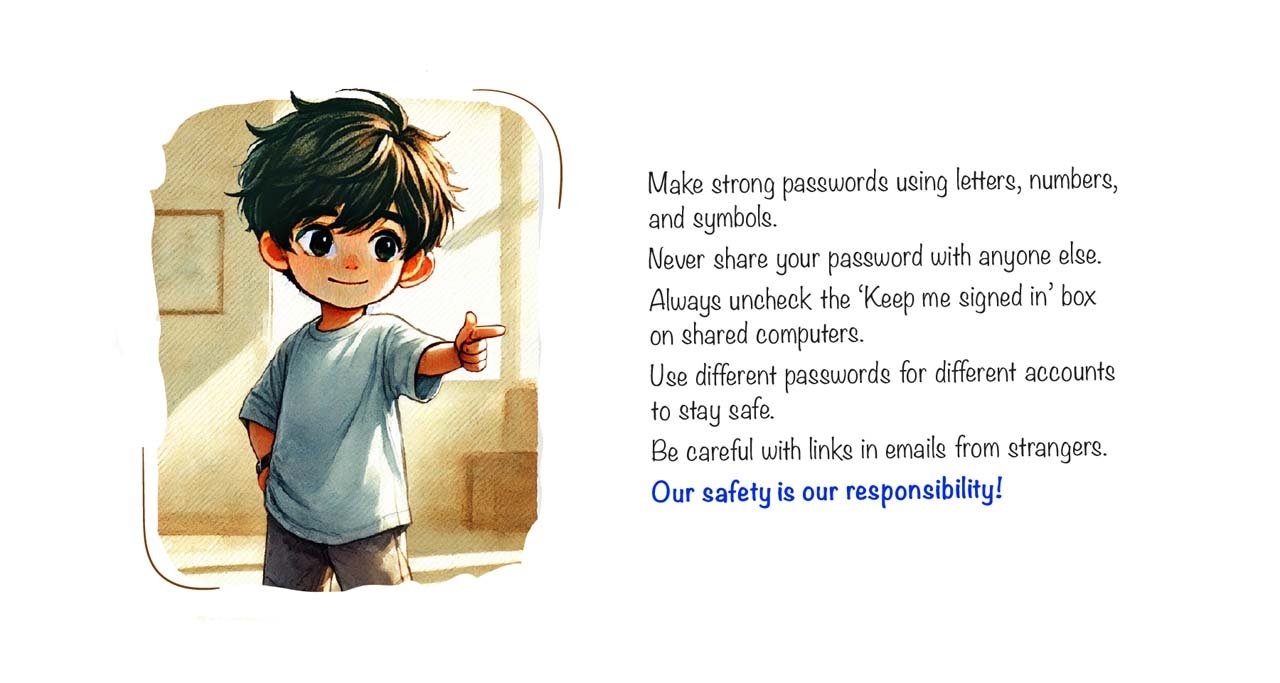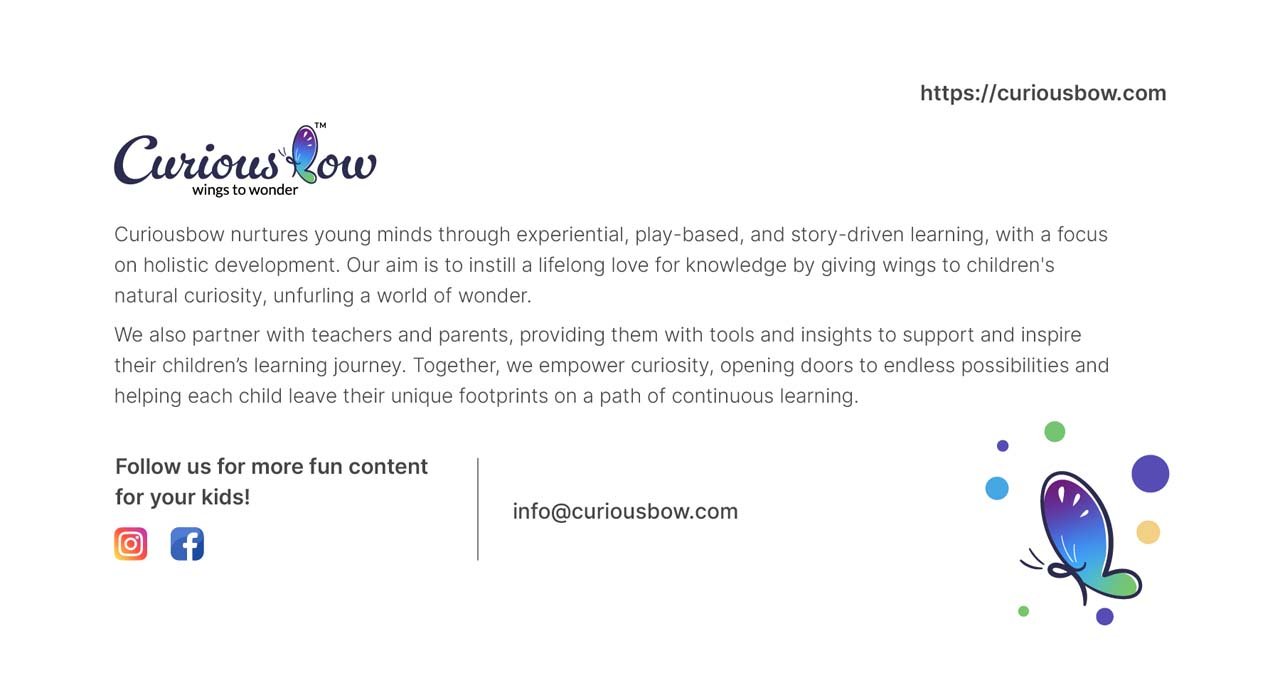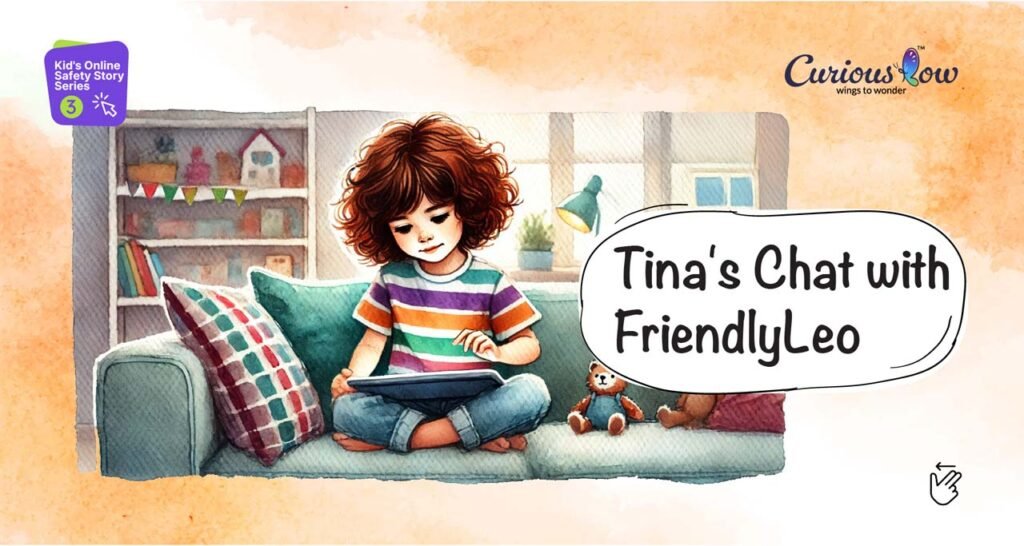Why teaching kids about strong passwords is essential
In today’s digital world, we all use email accounts for communication and logging into different websites, and children are no exception. Social media and online games are a big part of their lives, so it is essential to teach them how to use their accounts and passwords safely. Strong passwords protect personal information and prevent misuse by others.
When creating passwords, most people tend to choose something easy to remember—like a short name, birthday, or simple number patterns. Often, they put an “@” or “#” only because websites demand symbols in passwords. But they forget that an easy-to-remember password is just as easy for someone else to guess.
Why are strong passwords important?
Weak passwords leave accounts vulnerable to hackers or misuse, which can lead to serious trouble. A real-world example from 2020 involves a popular social media influencer who accidentally shared their password through a phishing link. Hackers accessed their account, posted inappropriate content, and sent malicious links to followers. The influencer had to face backlash from followers and legal consequences.
Leave the influencer, imagine a village schoolteacher who wrote his password in a notebook. A few naughty students found it, accessed his account, and posted obscene photos. How would he cope with the pressure from the community, his students, and his colleagues? The consequences of weak passwords are very real and often damaging.
How do you create a strong password?
Children may be experts in social media, but are they aware of the consequences of weak passwords? Creating a strong password isn’t a difficult task. Encourage your children to use a mix of letters, numbers, and symbols (like @ or #) to make passwords harder to guess. They should avoid using names, birthdays, or simple patterns like “123.” You can generate a strong password here.
How can you stay safe?
Children are often in the habit of sharing passwords without realizing the risks. Today’s close friend could be tomorrow’s rival. Even without rivalry, friends might use passwords to tease or play pranks. That’s why children should never share their passwords with anyone except trusted adults.
It’s equally important to log out from public computers once they’re done using them. Leaving an account logged in on a shared device invites misuse. Additionally, always remind children to uncheck the ‘Keep me signed in’ box on shared devices, such as in schools, libraries, or cafés. This ensures that no one else can access their private information.
We live in a digital world, and our children are growing up fully immersed in it. Just as we teach them values for living in society, we must also teach them the safety rules for navigating the online world. While digital devices offer knowledge at our fingertips, they can also expose our private information to millions in a second. Being a responsible digital user is crucial for both adults and children. By promoting these simple, practical habits early on, children will develop a sense of responsibility for their online privacy and safety.
